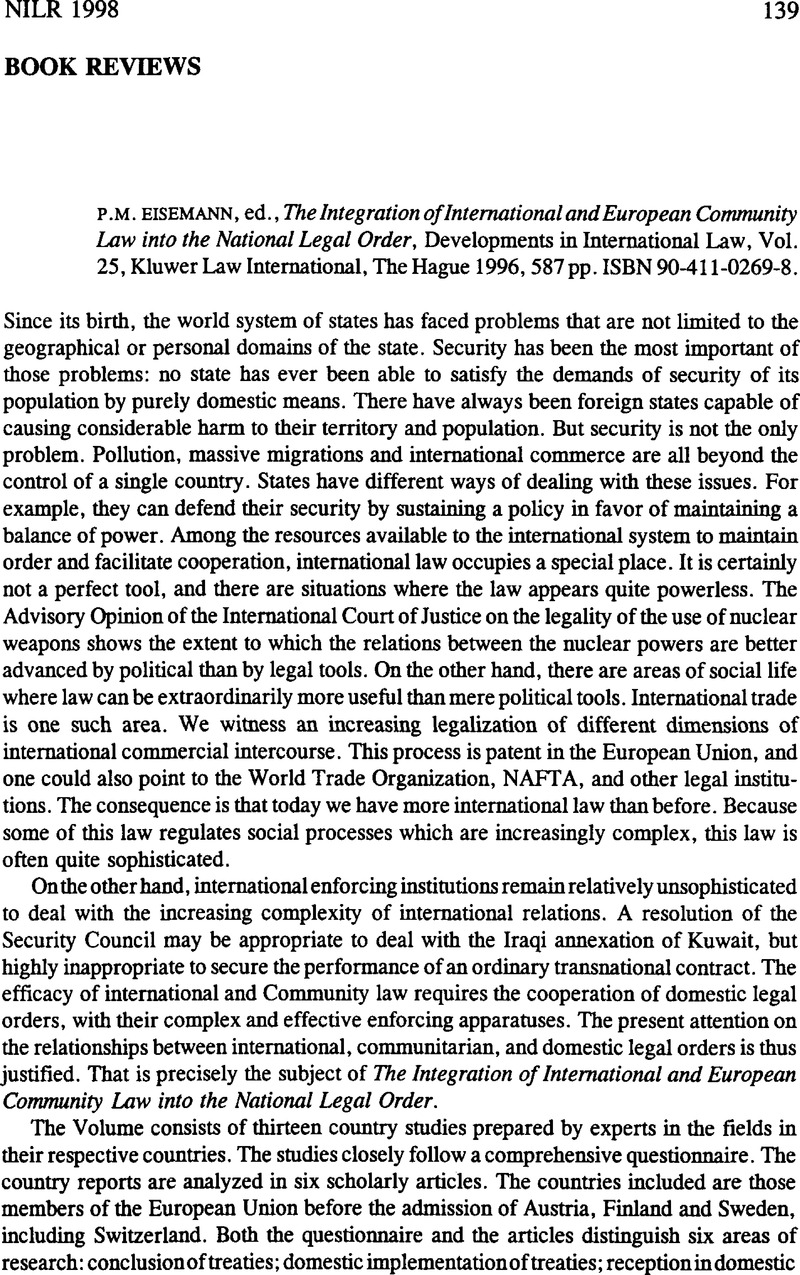No CrossRef data available.
Published online by Cambridge University Press: 21 May 2009

1. P.M. Eisemann, ed., The Integration of International and European Community Law into the National Legal Order (1996) pp. 73, 76 et seq. (Germany), 121 (Belgium), 195 et seq. (Spain), 247 (France), 289 (Greece), 365 et seq., 368 et seq. (Italy), 409 (Luxembourg), 466 (Portugal), 497 (United Kingdom), 536 et seq. (Switzerland). Not all these reports find the practice objectionable, since it can often be considered that a constitutional custom accepting such agreements has been established. If the constitution expressly determines which treaties need to be approved by the legislator, the executive has less room to abuse the use of agreements in simplified form. On the other hand, even if formally constitutional, the question still remains on how to secure accountability in the conclusion of these agreements.
2. Idem, p. 122.
3. United Nations Conference of the Law of Treaties, Official Records, Documents of the Conference, Vol. 11 (1971).
4. Op. cit. n. 1, at pp. 117 et seq., 188 et seq.
5. See report on Germany, idem, p. 69 at p. 72.
6. On a conflict showing the problems of the last in time rule in contemporary international law, see W.M. Reisman, ‘An International Farce: The Sad Case of the PLO Mission’, 14 Yale J Int'l L (1989) p. 412. See also, J.J. Paust, ‘Rediscovering the Relationship Between Congressional Power and International Law: Exceptions to the Last in Time Rule and the Primacy of Custom’, 28 Va. J Int'l L (1988) p. 393.